VIDEO:
AUDIO:
MP3
Between July 2024 and June 2025, Missouri spent $31.7 million on NIL, the St. Louis Post-Dispatch’s Eli Hoff reported. That figure includes a hefty sum last month, per financial documents and invoices from the Mizzou-focused NIL collective, Every True Tiger. In 2024, Missouri spent nearly two-thirds of those dollars on football and 25% on men’s […]
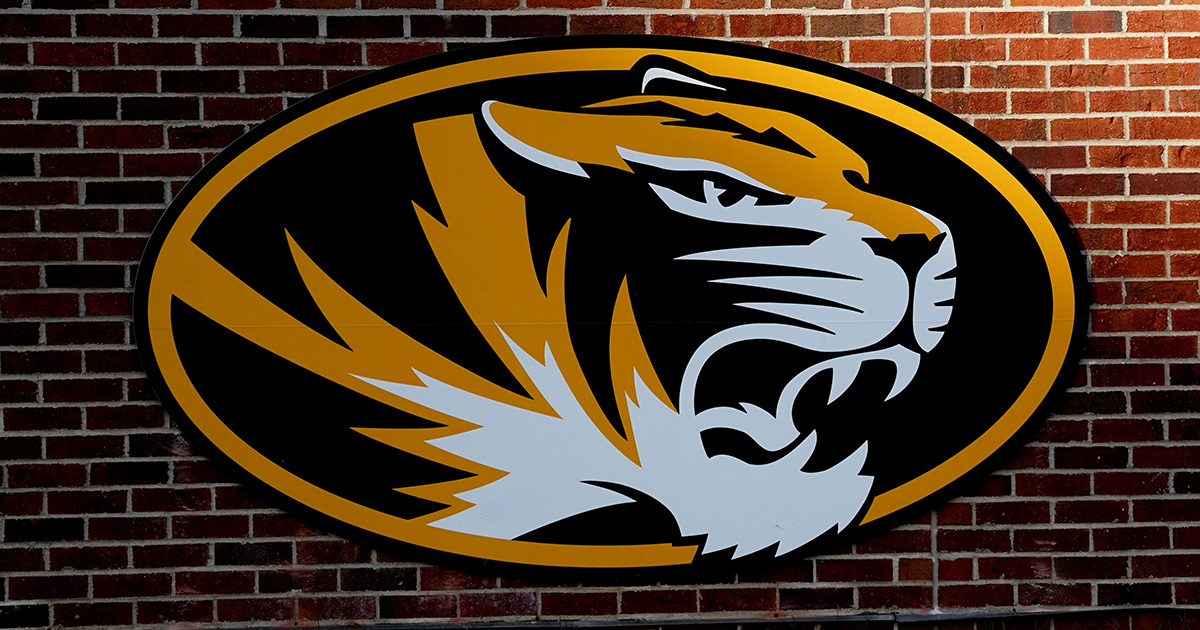
Between July 2024 and June 2025, Missouri spent $31.7 million on NIL, the St. Louis Post-Dispatch’s Eli Hoff reported. That figure includes a hefty sum last month, per financial documents and invoices from the Mizzou-focused NIL collective, Every True Tiger.
In 2024, Missouri spent nearly two-thirds of those dollars on football and 25% on men’s basketball, according to the Post-Dispatch, while the rest was split among the rest of the athletics programs. All told, the Tigers spent $12.4 million in 2024, and that number increased to $25 million so far this year.
Of that $25 million, nearly $10.3 million came this month, just before the House v. NCAA settlement takes effect. The idea of “front-loading” NIL deals became a topic of conversation as the agreement awaited final approval, ushering in the revenue-sharing era and creating a clearinghouse to vet deals.
Under the House settlement, schools will be able to share up to $20.5 million directly with athletes. Additionally, the NIL Go clearinghouse is in place, vetting deals worth more than $600. Run by Deloitte, it is meant to help determine fair market value, per settlement terms.
Deals struck prior to June 6 – the date Judge Claudia Wilken approved the settlement – and paid out before July 1 will be vetted by the clearinghouse. According to Yahoo Sports’ Ross Dellenger, more than 130 deals were submitted as of Wednesday night.
Every True Tiger was named one of On3’s Top 15 NIL collectives in the country last year, and the state’s law plays a big part in the relationship with the school. Missouri’s law allows an NIL collective to receive institutional funds for distribution to athletes, meaning every True Tiger shifted from operating as a donor-driven collective to a marketing agency. According to the Post-Dispatch, funds listed on the invoices are dubbed “talent fees.”
“Because of the leniency with the state law, the school and NIL collective have been aggressive,” a fellow SEC NIL collective leader told On3’s Pete Nakos of Mizzou and Every True Tiger.
Missouri football received the bulk of the NIL funds last year, securing slightly less than $8 million in 2024, according to the Post-Dispatch. The Tigers put together an impressive season, finishing 10-3 overall and winning the Music City Bowl against Iowa. It marked the second straight 10-win season for Eli Drinkwitz and Mizzou after going 11-2 in 2023, capped by a Cotton Bowl victory over Ohio State.
Minutes before the 2014 National Championship game, Kentucky fans feared their head coach was leaving Lexington to coach the Los Angeles Lakers. It was a “done deal,” according to Rex Chapman. A decade later, Mark Pope is fired up to lead the Wildcats into his second season with the program. Another Pope from Kentucky is […]

Minutes before the 2014 National Championship game, Kentucky fans feared their head coach was leaving Lexington to coach the Los Angeles Lakers. It was a “done deal,” according to Rex Chapman.
A decade later, Mark Pope is fired up to lead the Wildcats into his second season with the program. Another Pope from Kentucky is joining the Lakers’ organization. This time, it actually is a done deal.
Austin Pope (no relation) was a graduate assistant during Mark Pope’s first season in Lexington. Next year, he’s returning to the West Coast as the head video coordinator for the South Bay Lakers, L.A.’s G League affiliate. The Burbank native couldn’t pass up the opportunity to join the team he grew up idolizing.
“It means everything,” Pope told SB Nation. “I was born a Laker. People say that all the time with their fandom and things, but it’s just unreal. I feel super grateful, man. My mom, when I was a baby in her stomach, I used to go to games at The Forum and as a young kid I would go to church at The Forum and go to games, followed Magic, Byron Scott and Michael Cooper. So for me, it’s a full-circle moment to work in the organization.
“I played Burbank YMCA (when I was young) and had all these Junior Lakers jerseys and pictures, so just full circle working in the place that you kind of were born into and was in your backyard. And Kobe being my G.O.A.T. and my favorite (player), come on, man. I’m overjoyed.”
Austin Pope played junior college basketball, then concluded his career at Chaminade University. He spent two years coaching high school hoops before cracking into the college ranks last season at Kentucky. Pope received valuable experience in Lexington. Best of luck to him on the West Coast.
Kentucky Sports Radio has expanded its coverage of the Wildcats in the most ridiculous manner possible on our YouTube Channel. Here you will be able to find interviews with coaches and players, as well as commentary from the KSR crew. From Rapid Reactions following big events to our lengthy lineup of live shows, subscribe to the KSR YouTube Channel to stay up to date on everything happening around the Big Blue Nation.
Adam RittenbergJul 22, 2025, 09:02 PM ET Close College football reporter; joined ESPN in 2008. Graduate of Northwestern University. LAS VEGAS — Maryland football coach Mike Locksley admitted Tuesday he “lost” the locker room in 2024 over which players to compensate, a factor that led to the Terrapins’ worst season since his debut in 2019. […]
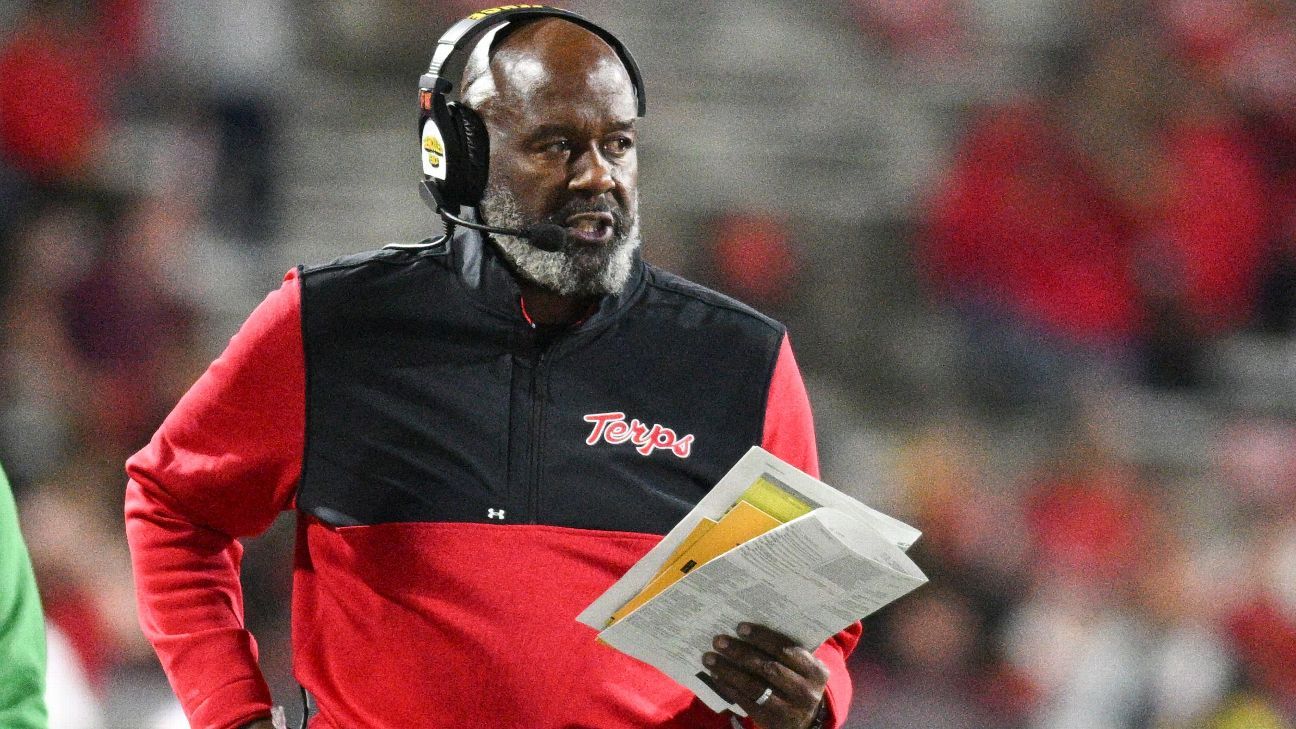
LAS VEGAS — Maryland football coach Mike Locksley admitted Tuesday he “lost” the locker room in 2024 over which players to compensate, a factor that led to the Terrapins’ worst season since his debut in 2019.
The Terrapins finished 4-8 and dropped all but one of their Big Ten contests. Maryland had more players selected in the NFL draft (six) than wins, as it lost its final five games, all by 14 points or more. Locksley attributed part of the struggles to the changing financial landscape in college football, as Maryland had to make decisions on how to compensate players through NIL deals and ultimately created some divisions.
“I own the fact that I lost my locker room,” Locksley told ESPN. “And this is Coach Locks, the locker room king, telling you this landscape, I had to choose between paying young players who were coming in or reward the older players that have been through the fire, three bowl wins, and I tried to do both with limited resources. And that’s what you get: a locker room with the haves and have-nots.”
Locksley, who is entering his seventh season at Maryland and 10th overall as an FBS coach, called the experience “a valuable lesson” in how to manage players, relationships and expectations. Maryland won three consecutive bowl games under Locksley, from 2021 to 2023.
“You go outside my locker room 1753238805 and I have a sign that says: ‘Leave your Louis belts, leave your financial statements and your car keys outside of this locker room, because in here we’re all going to pay the same price for success or failure,'” he said. “If I’ve got to put my desk in that locker room, I will. A valuable lesson learned.”
Locksley said the House settlement and the money Maryland distributes to its players have allowed him to focus more on the locker room rather than external fundraising.
Maryland will enter the season with questions at quarterback — where UCLA transfer Justyn Martin, redshirt freshman Khristian Martin and decorated incoming freshman Malik Washington, ESPN’s No. 134 overall recruit, will compete — and other positions.
“I call this a year of vulnerability for me, because I’ve been torn about what to say about our team when people ask; but I don’t know what type of team we have yet,” he said. “Some people, as a coach, it’s like a bad thing to say, ‘I don’t know.’ But it’s a good thing that I don’t know.”
This offseason, LaNorris Sellers reportedly turned down an $8 million NIL deal to transfer away from South Carolina. Despite this, he’ll be suiting up for the Gamecocks in just over a month’s time. When that report was released in June, it raised more than a few eyebrows. After all, this comes during an era in […]

This offseason, LaNorris Sellers reportedly turned down an $8 million NIL deal to transfer away from South Carolina. Despite this, he’ll be suiting up for the Gamecocks in just over a month’s time.
When that report was released in June, it raised more than a few eyebrows. After all, this comes during an era in college football where money can lure anyone anywhere, Sellers’ decision boiled down to one simple reason.
“It’s close to home,” Sellers told Rob Stone, along with Mark Ingram and Urban Meyer on the Triple Option podcast. “My parents come to all my games. I still go home for holidays like Christmas, Thanksgiving and all that. If I ever need something, I can just shoot over the road (and go) home. If they want to just come up here, just get away from home, they can come to me. Being around all of my family, that’s all I need.”
The alleged interest from other programs comes as he shot up draft boards after the 2024 season. After one season as the Gamecocks’ starter, the potential is there and many experts believe that Sellers has all of the intangibles that NFL scouts look for in a potential first-round quarterback. In turn, all eyes will be on Sellers when South Carolina takes the field each weekend this fall.
After redshirting during his true freshman season in 2023, Sellers didn’t disappoint during his first campaign as the Gamecocks starting QB. In 2024, Sellers completed 65.6% of his passes for 2,534 yards and 18 touchdowns compared to seven interceptions. He also finished as South Carolina’s second-leading rusher on the team with 674 yards and seven touchdowns last season.
Now that he’ll likely be a Gamecock for life based on his early 2026 NFL Draft projections, it’s time for Sellers to work on the little things to fine tune his game before turning pro. It’s been up to him to address some of the weak spots in his game in the meantime.
“Small things like anticipation, footwork and all that,” Sellers said. “Just building off of mistakes from last year just trying to fix them to get better at it for this year.”
South Carolina’s season begins on Sunday, Aug. 31 against Virginia Tech for the Aflac Kickoff inside Mercedes-Benz Stadium in Atlanta. Sellers will have multiple opportunities to prove himself against elite competition with matchups against the likes of LSU, Alabama and Clemson down the stretch
Jake TrotterJul 22, 2025, 09:03 PM ET Close Jake Trotter is a senior writer at ESPN. Trotter covers college football. He also writes about other college sports, including men’s and women’s basketball. Trotter resides in the Cleveland area with his wife and three kids and is a fan of his hometown Oklahoma City Thunder. He […]
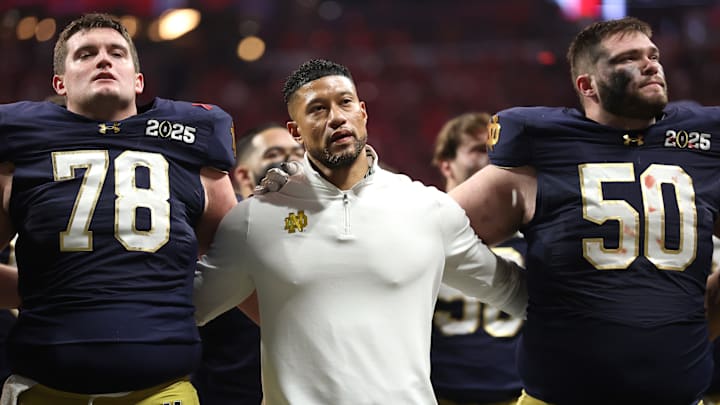
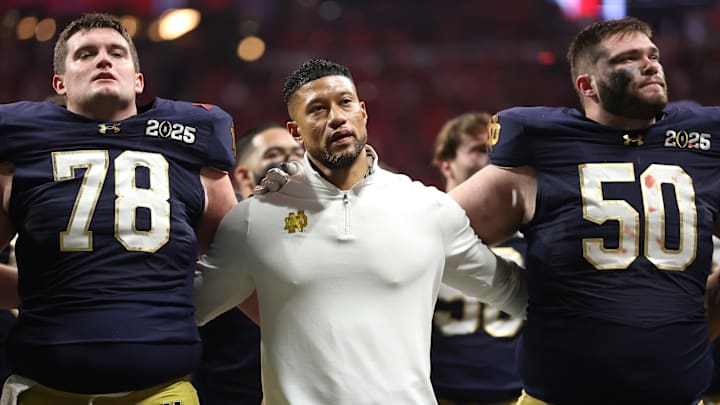
LAS VEGAS — Ohio State coach Ryan Day reiterated Tuesday that the Buckeyes didn’t add a transfer portal quarterback this offseason because they want to develop the three talented passers they already have on campus.
Sophomore Julian Sayin is battling junior Lincoln Kienholz and true freshman Tavien St. Clair for the starting job as the Buckeyes look to replace Will Howard. After transferring from Kansas State in January 2024, Howard quarterbacked Ohio State to its first national championship in a decade in his lone season with the Buckeyes.
“When we have to, or when we’re left in that situation, we will [bring in a transfer quarterback],” Day said during Big Ten media days. “But we want to develop guys, and these are three guys we want to continue to develop.”
Sayin was the nation’s top-rated quarterback in the 2024 recruiting class. After initially signing with Alabama, the 6-foot-1, 203-pound Sayin transferred to Ohio State once coach Nick Saban retired.
“Julian certainly gets the ball out quickly,” Day said. “He’s had a good offseason. He’s intelligent. He’s very competitive. He’s got good athleticism. He’s accurate.”
But the 6-3, 207-pound Kienholz pushed Sayin in the spring and will have an opportunity in the preseason to win the job. Kienholz, only the second player to sign with the Buckeyes from the state of South Dakota, was a multisport star in high school.
“Just a tremendous athlete,” Day said of Kienholz, who has been in the program for three years. “You pick a sport, he can do it. He’s like a four handicap [in golf]. He can hit the [baseball] out of the park. He was a major league baseball prospect. He can windmill dunk. He can do a lot of things.”
Because he arrived on campus only earlier this year, St. Clair remains behind in the competition. But he was the nation’s No. 10 overall recruit and the gem of Ohio State’s incoming recruiting class.
“He certainly has the size, the makeup,” Day said of the 6-4, 225-pound St. Clair. “He’s a great young man. He’s very intelligent. He’s athletic. He can throw the ball. I think he’s got a really bright future ahead of him. …
“They’re all exciting guys.”
Day declined to give a timetable of when he might announce a starter ahead of the Buckeyes’ blockbuster opener against Texas on Aug. 30 — a rematch of last season’s playoff semifinal.
“I think it’s important for the locker room to believe in whoever that is,” Day said. “When the locker room believes in that guy, that’s the right time. … So we’ll see where this goes.”
In this exclusive and extensive interview, UCLA head basketball coach Mick Cronin talked about the Transfer Portal, evaluated every player on his roster after several weeks of summer practice, and then went in-depth on the way NIL and rev share have impacted recruiting and player retention. VIDEO: AUDIO: MP3 This article originates on BruinReportOnline.com. 247Sports […]

VIDEO:
AUDIO:
MP3
This article originates on BruinReportOnline.com.
Attorneys representing the plaintiffs in the House settlement and attorneys for the power conferences have reached an agreement that will, in effect, lead the College Sports Commission to back off on striking down deals with athletes, according to multiple reports on Tuesday. Back on July 10, the CSC issued a guidance that said booster-run collectives […]
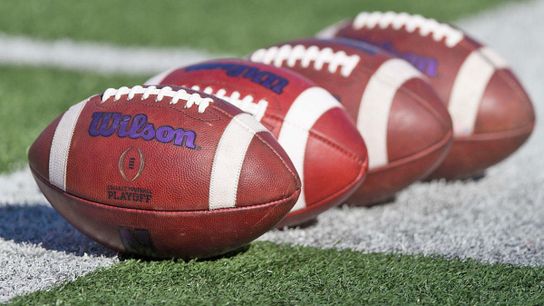
Attorneys representing the plaintiffs in the House settlement and attorneys for the power conferences have reached an agreement that will, in effect, lead the College Sports Commission to back off on striking down deals with athletes, according to multiple reports on Tuesday.
Back on July 10, the CSC issued a guidance that said booster-run collectives did not satisfy its terms as a “valid business purpose.” This meant that, in layman’s terms, a collective could work as a marketing arm to facilitate a deal between Athlete A and Business Z, but Athlete A could not enter into a deal with a collective itself — even if that collected operated as a business by selling T-shirts and hats to the public or producing a podcast. This was, needless to say, a shock to the system, because collective pay served as the backbone of the NIL system. Very few athletes were paid by the likes of Dr Pepper or Adidas, but thousands received money to sell their NIL rights to their own collective. According to the firm Opendorse, collective pay rose from $321 million in 2021-22 to more than $900 million by 2022-23.
“All of their (athletes’) deals are getting shut down by NIL Go,” a source at a collective told The Athletic. “Even deals of $5,000 or less.”
The Collective Association threatened to sue, since the CSC and its NIL Go system were threatening to put them out of business. This exchange from Utah AD Mark Harlan explained the thinking of the CSC and those behind it.
Maybe this is just me, but has this group been under a rock? Makes me appreciate the team at the Crimson Collective who knew that after the settlement agreement, the game charged. True NIL….not that hard https://t.co/jI2pZIuTgp
— Mark Harlan (@MarkHarlan_AD) July 10, 2025
Now, to use Harlan’s term, the game is set to change yet again, back to the old one. As Yahoo explained Tuesday:
The change to the valid business purpose standard potentially opens the door for the continuation of school-affiliated, booster-backed collectives to provide athletes with compensation that, if approved by the clearinghouse, does not count against a school’s House settlement revenue-share cap. This provides collectives a path to strike deals with athletes as long as those transactions deliver to the public goods and services for a profit for the organization, such as holding athlete merchandise sales, autograph signings and athlete appearances at, for example, golf tournaments.
Collectives are still tied to the CSC’s “fair market value” clause, where School C cannot pay their starting quarterback $500,000 to sign autographs if School A and School B pay theirs $5,000. But if Schools A and B also pay theirs $500,000… who’s to say what fair market value really is?
That is perhaps a legal question for another day, but Tuesday’s agreement indicates the power conferences admitted they were going to be sued into oblivion if collectives were no longer allowed to pay athletes.


Why a rising mid-major power with an NCAA Tournament team opted out of revenue-sharing — and advertised it
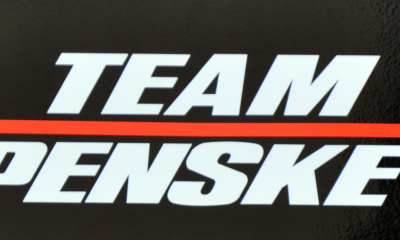

Team Penske names new leadership


🚨 BREAKING: NBA MVP Shai Gilgeous-Alexander signs the RICHEST annual salary in league history


New 'Bosch' spin


EA Sports College Football 26 review – They got us in the first half, not gonna lie
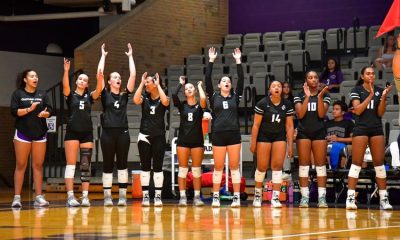

Volleyball Releases 2025 Schedule – Niagara University Athletics


MSU Hockey News – The Only Colors


E.l.f Cosmetics Builds Sports Marketing Game Plan Toward Bigger Goals


CAREGD Trademark Hits the Streets for Mental Health Month


Buford DB Tyriq Green Commits to Georgia